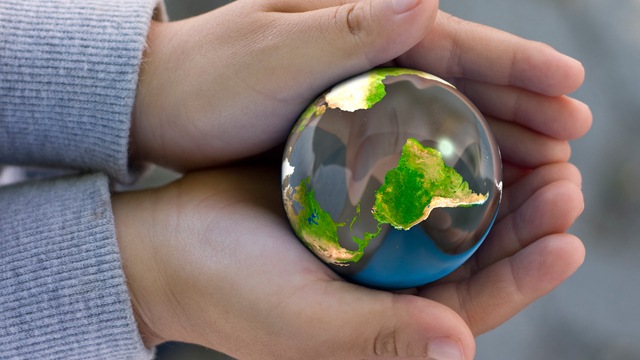To respond to the Do Now, you can comment below or tweet your response. Be sure to begin your tweet with @KQEDEdspace and end it with #DoNowHabits
For more info on how to use Twitter, click here.
Do Now
What’s the best way to create a sustainable future in a changing climate — through government regulation, or through changing people’s habits and attitudes?
Introduction
As we face the consequences of a changing climate, many people wonder how we can most effectively change the consumptive habits of U.S. citizens. The government has the ability to implement taxes and regulations that put restrictions on carbon emissions, and to provide subsidies to companies in order to make environmentally friendly options cheaper and more lucrative. However, with a gridlocked Congress and slow administrative progress, is it more effective to change people’s behavior and attitudes or affect change through government action?
Some say yes. For example, in Japan, social habits have a large impact on resource use and waste produced. According to the World Bank, Japan emits 9.2 metric tons of carbon dioxide per capita (compared to the United States’ nearly 17.6). With comparable economies, what difference could produce such skewed results? In addition to the small footprint and corresponding energy efficiency of many Japanese homes, some believe that the cooperation, investment and attitude of the people of Japan goes a long way towards explaining the difference. The culture of Japan values land very highly, and limits landfill. According to Jacquie Ottman, the founder of People Towels, she found no paper towel dispensers or electric hand dryers during her travels in Japan — each person carried their own hand towel. Contrast this with the United States, where we value convenience (and have lots of room for landfill!). A study completed by students at the Rochester Institute of Technology found that by switching to electric hand dryers on a college campus, carbon emissions from hand drying could be reduced by 75% compared to paper towel use. But, when participants were asked which they preferred, 64.6% said paper towels. Informational campaigns have been shown to have little effect on consumer preferences and behavior, so encouraging environmentally habits is more than quoting statistics.
With this in mind, climate change activists and advocates are looking to the social sciences to understand what will motivate behavior change for consumers and communities, and whether it’s a better route than government mandates. What do you think? Are top-down regulations the best way to reduce greenhouse gas emissions or should we focus our efforts on changing social habits and attitudes? How would you suggest trying trying to change people’s behavior?
